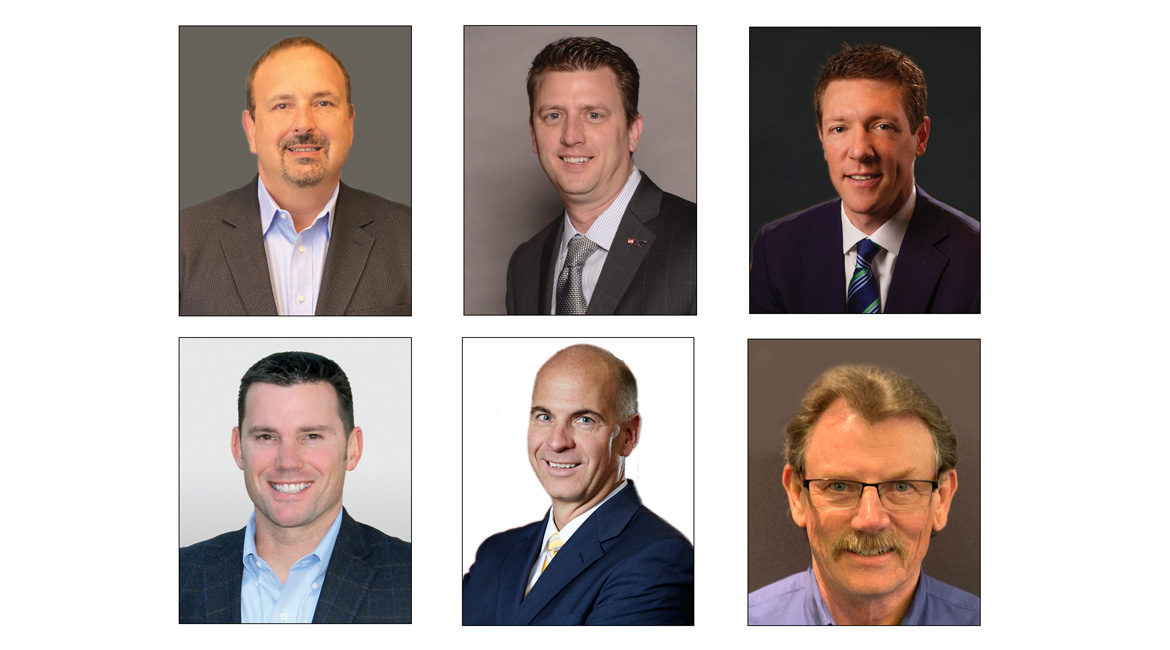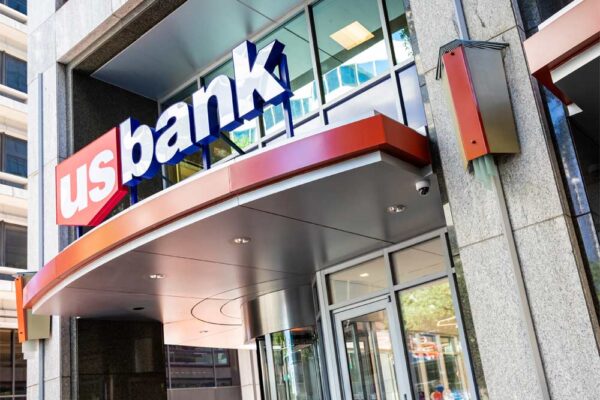Above clockwise from top left: Auman, Buysse, Flesch, Lane, Marusic, McArtor
In February 2020, The Cannata Report presented a virtual panel featuring Eric Auman, president, Hytec Dealer Services; Phil Buysse, senior vice president, general manager, office equipment vendor services, U.S. Bank; Patrick Flesch, president, Gordon Flesch Company; Josh Lane, president, ACDI; Mike Marusic, president and CEO, Sharp; and Wes McArtor, president, NEXERA, a BEI Services Company. One of the questions we asked the panel pre-COVID was are you concerned by the shrinking number of independent dealers as acquisitions at a fast and furious pace? Here’s what they had to say.
Auman: Hytec “Dealer Services” began operations in 1985 completely dedicated to supporting independent imaging dealerships with quality repair services and complementary service products. In our early years, we experienced all the acquisitions made by Alco Standard (IKON), Danka, and Global Imaging; and then the subsequent roll up when the manufacturers purchased these organizations. Hytec successfully adapted to these changes and supports the entire industry’s needs regardless of the service provider. When consolidation occurs, sometimes it brings more efficiency to those organizations, where they can leverage less inventory to support their service operations. The result can be a reduction in business to Hytec. On the other hand, sometimes it is more efficient for Hytec to conduct business with one entity (i.e. IKON or a single manufacturer) than a lot of smaller dealerships. Today about half of Hytec’s business is from independent dealers, and half from all the OEM direct organizations. Hytec’s infrastructure is geared to supporting the needs of the independent imaging dealer, and this remains Hytec’s greatest strength.
Buysse: We don’t see this as concerning, but simply as a natural cycle that is playing itself out as the market evolves. We are fortunate to work with the majority of the market players. We expect to continue to provide value, and many new businesses to be an established partner as services and methods of delivery also evolve.
Flesch: No. Our focus is on ourselves, and our company is growing. Fewer dealers actually means fewer competitors in our markets, and we feel strongly about our competitive advantage against our current competition. This trend also presents additional future acquisition opportunities for us. Many smaller dealers are lacking succession plans so they are looking for ways to exit.
Lane: Yes and no. On one hand there’s opportunity for ACDI to scale as our partners scale and achieve success, and on the other hand, consolidation can introduce competitive options. The opportunity and risk due to consolidation has always existed. In some instances, dealer consolidation can create opportunities to strengthen our levels of delivery and support through a more centralized approach. We strive to build relationships through what we like to call an ever-changing and forever-evolving means of value-delivery. That value applies to workplace-centric hardware and software solutions, consultative services, and professional services, as well as data-driven, vertical-specific needs such as cost savings, IT assurances, workplace efficiencies, delivery models, competitive pricing, and training—all while building a strong sense of community.
Marusic: Yes, it is a concern for Sharp and should be for the channel as a whole. On the Sharp side, our dealers represent a huge portion of our business and their success is closely tied to our success. Fortunately, the larger dealers who are doing a lot of the acquiring are our fastest-growing revenue segment, so we are well-positioned in that regard. However, I don’t think it is a positive for the industry. Some of the best innovation and support come from the independent dealers. They are the most nimble and opportunistic when it comes to new businesses. If that dynamic influence were to be minimized in the industry, that would not be good for anyone. However, these trends ebb and flow, and this industry has been through it before. A vacuum of smaller independent dealers will create new opportunities for the next generation of entrepreneurs.
McArtor: Customers should be concerned. As we’ve seen in the past, consolidators often make financial decisions that impact the customer. Cutting costs often leaves the customer with poorer responses to their needs. In addition, cost-cutting moves decisions further and further away from the customer, and larger companies tend to have more layers of controls, so getting answers just isn’t as easy. I’ve seen this happen so many times over the years, and I’m astounded that the cycle doesn’t seem to change, which simply highlights our industry’s tendency to not change the status quo.
Access Related Content




